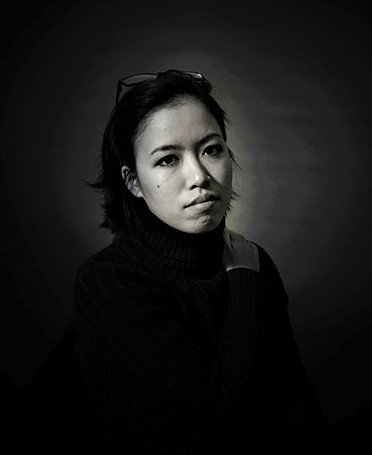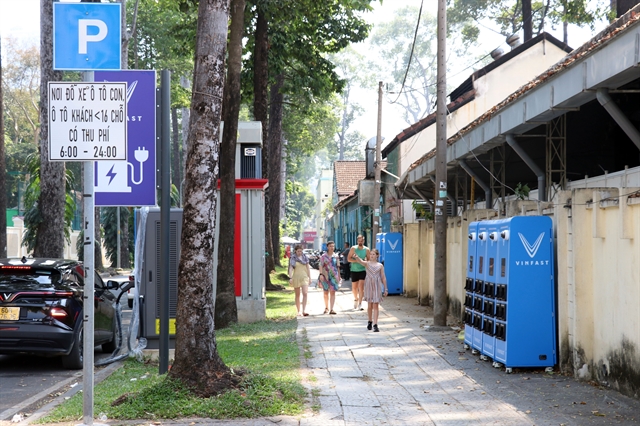 Life & Style
Life & Style

Nhân Dân Cuối Tuần (People’s Weekend) reporter Phong Vân spoke to Hà Đào, Matca’s Managing Editor and Programme Co-ordinator on the celebration of its 5th anniversary.

|
| Matca’s Managing Editor and Programme Co-ordinator Hà Đào. — Photo courtesy of Matca |
Matca is an independent and non-profit organisation dedicated to photography as a form of visual art. Founded in 2016, it is a space to broaden public understanding of photography and help emerging photographers work and grow together.
Nhân Dân Cuối Tuần (People’s Weekend) reporter Phong Vân spoke to Hà Đào, Matca’s Managing Editor and Programme Co-ordinator on the celebration of its 5th anniversary.
Could you tell us more about Matca’s target of making photography a form of visual art?
I understand the term visual arts here in its broadest sense. When an image conveys the author's own thoughts, it is automatically considered a work of visual art, regardless of the "genre", whether it is fashion, documentary or still life, a personal project or a commissioned work.
The distinctions are getting blurred. If we remove a medium from the labels of genre or specifically in the case of photography to convey the truth, many possibilities will open both in creativity and feeling.
After all of Matca's activities in the online as well as physical space, I think Matca's greatest achievement is the fact that the writers and artists who work with us do not have to compromise for any reason.
We are committed to protecting the independence of creativity. I am grateful to Linh Phạm who has spent countless assets and resources to build Matca in this direction without receiving the spotlight on him.
Matca has been in operation thanks to its founders’ money and domestic and international grants for each project. That is indeed the difficulty for other spaces. What have you done to overcome issues for the next five years?
Matca's difficulties are similar to those of other independent art spaces in Việt Nam and in Southeast Asia where public funding and infrastructure for the arts are lacking.
But in return, we understand that it is a privilege to be focused on pursuing creative work. Therefore, trying to continue is the only possible way because we always want to go a long way.
If I could dream, I would dream that the infrastructure for the arts would be strengthened, the next generation of artists would be bolder and more aggressive, and more aesthetic collectors would emerge. But it seems that this is also the dream of the generation 20 years before me.
Could you provide some statistics on audience interaction with Matca?
Matca's total social media following is more than 20,000 people which is not an impressive number. But it also exceeds our expectations for an independent project with a deep interest in a specific field which is still narrow in Việt Nam.
According to my observations, Matca's audience is mostly young people interested in photography but also many colleagues such as photographers, artists, journalists, editors, publishers and directors of international contemporary photography festivals.
I simply think that the need to learn and discuss various aspects of photography has always existed. Matca is one of the few in-depth platforms for that in Việt Nam.
Matca's exhibitions of photo books by some contemporary photographers are changing the display. Why is this?
As an insider, I understand the value of these books. Many of them are quite expensive and rare.
In those books, photography is no longer a single photo but sometimes a whole life project dealing with rather abstract and distant content. It is about the future of technology or the tragedy of a family whose daughter mysteriously disappeared.
Such content may make the popular audience hesitant to approach it. We love photo books and also have a small personal collection. We always want to spread this love.
But a new thing is always curious. Many young people even spend the whole session brooding on or coming back for the second and third time. They check in with the books and post on social networks and then invite their lovers to come along.
That fact tells us that the popular audience is open and they understand what they see. It shows that the need to enjoy and interact with beauty is always present.
Could you tell about Matca’s first publication entitled Makét? How was it received and will Matca continue to have more publications?
Makét 01 was published to introduce Lai Xá – a craft village in Hà Nội. Some 100 copies of Maket 01 were sold on the first day of release. After nearly two years the books were sold out. Our customers are in both Việt Nam and abroad such as the US, Canada, Taiwan and Singapore.
The book by an unknown author was produced by an independent project was well-received without advertisement. It made us very grateful and indeed more motivated to publish Makét 02.
This will be a collection of four sets of photos by four young Vietnamese photographers. — VNS




